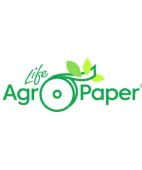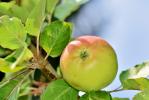
LIFE Project: Towards plastic-free agricultural soil management practices
- Type Project
- Status Filled
- Execution 2020 -2023
- Assigned Budget 1.956.015,00 €
- Scope Europeo
- Autonomous community Castilla y León
- Main source of financing LIFE
- Project website Web del proyecto
The project aims to demonstrate and validate a new soil management practice for agricultural mulch using tailor-made water-resistant papers for different crop types, climates, and farming methods.
Global agricultural plastic consumption, primarily low-density polyethylene (LDPE) and polyethylene (PE), amounts to 6.5 million tons per year. In Europe, 3.3% of plastics are used for agricultural applications (0.3 million tons). The main agricultural applications are mulching (427,059 ha), greenhouses (111,550 ha), polytunnels (68,991 ha), and direct coverings (61,800 ha).
In mulching, cultivated soil is mechanically covered with thin plastic films (20–50 µm), which protect young plants and contribute to increased yield and quality, weed and soil erosion control, and efficient use of water and pesticides. The two European countries with the largest mulching areas are Spain (120,039 ha) and France (100,000 ha).
Plastics have helped farmers increase agricultural production in the EU thanks to their low cost, good workability, and high strength. However, the widespread use of plastic is also causing significant environmental impacts, such as the generation of large volumes of waste that are very difficult to recycle and the potential contamination of soil, air, and water. Recently, alternatives to bioplastics have been increasingly used for crop mulching. These offer a clear advantage in terms of sustainability, but come with disadvantages in terms of performance. Bioplastics degrade more quickly, and at the end of the crop cycle, the material is no longer effective, while bioplastics fragment into small particles that remain in the environment and make their recovery difficult. In 2017, SMURFIT KAPPA began searching for alternatives to plastic for mulching, relying on a new type of paper with very promising R&D results.
To demonstrate and validate a new soil management practice for agricultural mulch using water-resistant papers tailored to different crop types, climates, and cultivation methods, as well as through the use of various inks, coatings, and natural treatments.
- The paper was tested for agricultural uses in 18 large-scale demonstrators in five different crops, covering 12.6 ha with various types of tailor-made, water-resistant paper mulch (the so-called AgroPaper®).
- Demonstration activities were carried out in four different regions located in Spain and France, in order to validate AgroPaper® under different environmental conditions.
- The reduction in weeds, improved soil quality, reduced carbon footprint, and reduced mulching time in these crops were confirmed. Furthermore, replacing plastic mulch with AgroPaper® resulted in a reduction in emissions of 5,962.84 kgCO2e/ha.
- Coordinator/entity name: Iñaki Urdaci
Postal address: Ctra. Zaragoza km 3, 31191, Cordovilla,
AgroPaper® is 100% biodegradable, made from long pine fibers, and has OK COMPOST HOME certification. It meets all the requirements for biodegradable mulches and is therefore considered an agricultural input within the scope of Regulation (EU) 2019/1009 of the European Parliament and of the Council of 5 June 2019 laying down rules for the placing on the market of EU fertilizer products of CMC category 9 (component materials of fertilizers and soil conditioners, such as polymers other than nutrient polymers).
- SMURFIT KAPPA NAVARRA S.A.
- FLORETTE IBERICA ALIMENTARIO
- PRIMEALE FRANCE
- FLOREALE(FLOREALE HOLDING)
- FLORETTE(FLORETTE IBéRICA, S.L.U.)
- SEAE(Sociedad Española de Agricultura Ecológica)
- AN(AN S. COOP.)
- CSIC(AGENCIA ESTATAL CONSEJO SUPERIOR DE INVESTIGACIONES CIENTíFICAS (CSIC))







